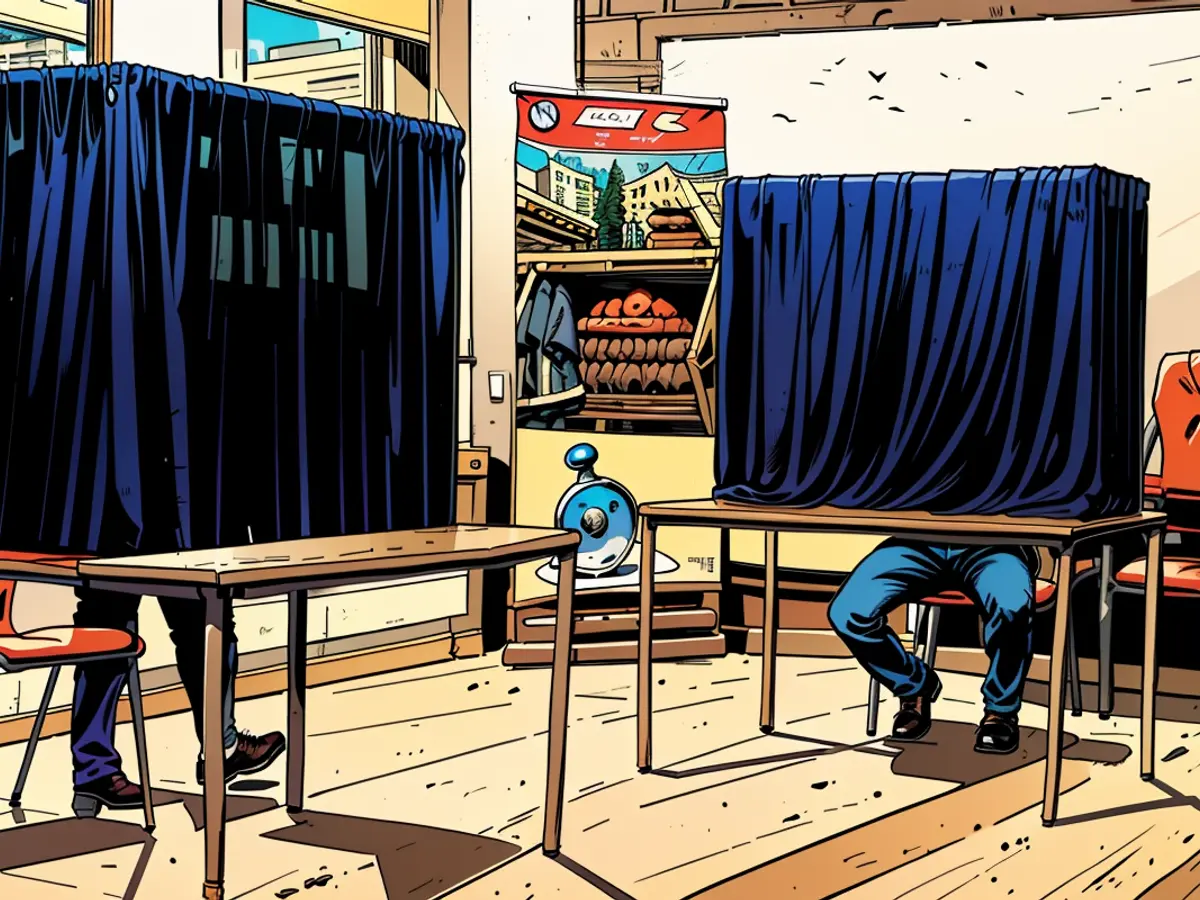The Saxon election administrator affirmatively states: Technical glitches have no impact on the election outcome.
Due to the subsequent adjustment of the initial figures released about the predicted seat distribution, no party saw a gain or loss of mandates, as clarified by the election overseer. The decision on the seat allocation is solely made after the confirmation of the final result by the state election commission, as outlined in the election law. This takes place on September 13th.
According to the election administrators, all vote totals for the parties' lists remained identical. The preliminary results from the Sunday election were not amended. The technical issue with the software that led to an incorrect calculation of the preliminary seat distribution during the election night was fixed by the IT support service provider.
In the election, the CDU, led by Minister President Michael Kretschmer, emerged as the strongest force with a 31.9% share, according to the preliminary results. The AfD, classified as right-wing extremist by the state constitutional protection office, trailed closely behind with 30.6%. The BSW (alliance "Sahra Wagenknecht") recorded a successful debut with a 11.8% share. The SPD received 7.3%, while the Greens saw a 5.1% share. The Left also managed to secure entry into the state parliament with the help of two direct mandates. Additionally, a candidate from the Free Voters secured another direct mandate.
The correction of the predicted seat distribution resulted in a decrease of one seat each for the CDU and AfD compared to the information from the election night. The number of seats for the SPD and Greens increased by one each. This shift in seats is particularly significant for the AfD as they now fall below the threshold required for a so-called blocking minority in the state parliament, which would enable them to veto constitutional amendments.
Given the current majority dynamics, the formation of a government in Saxony is complex. A coalition with the AfD is out of the question for other parties, and a reform of the previous ruling coalition of CDU, SPD, and Greens is insufficient. There is the possibility of three-party coalitions involving the CDU, BSW, and another party. The CDU has announced talks with BSW, SPD, and Greens. However, as of Wednesday, no dates for these discussions have been set.
During the constitutional meeting on Wednesday, the CDU faction in the newly-elected state parliament re-elected its previous chairman, Christian Hartmann. He received 95% of the votes, as reported by the faction.
After the correction of the seat distribution, the SPD gained an additional seat in the Saxony parliament. The SPD, along with the CDU, SPD, and Greens, is currently under consideration for potential three-party coalitions by the CDU.







